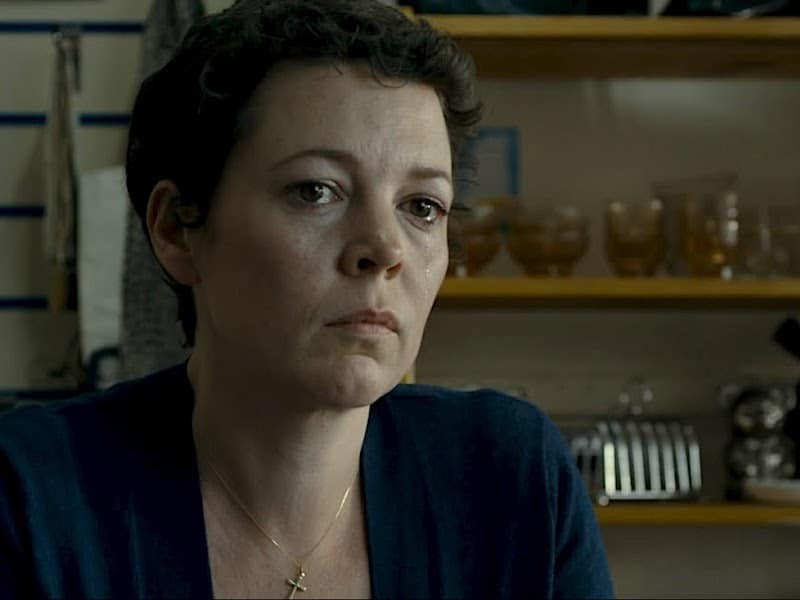
The bleak, grey world of Tyrannosaur will be familiar to anyone who’s spent time in the cinematic universe of British miserablism, that subgenre of grim movies set on the isles. Protagonist Joseph (Peter Mullan) inhabits a milieu of depressed flats and rundown pubs, living a hopeless existence on the estate in Leeds. Yet, the movie is the feature filmmaking debut of the terrific character actor Paddy Considine, who is not content to simply wallow in the misery. The director transforms what, at first appears to be the straightforward portrait of a violent man, into an affecting love story that chronicles his subtle redemption.
In doing as such, the filmmaker has given an exceptional vehicle to Mullan and Olivia Colman, who plays a shopkeeper named Hannah. Considine’s characters are not simply defined by first impressions and easy conclusions; instead, they’re afforded the opportunity to grow and change, to reveal the reservoirs of experience, the unexpected strengths and profound, hidden weaknesses that collectively define their lives.
When we first meet Joseph, he’s at his lowest point, having kicked his beloved dog to death in a drunken rage. The mysterious middle-aged man shakes and throbs with palpable fury, a powder keg of volatility. One day, in a fit of sheer desperation, he stumbles into Hannah’s store. She’s kind to Joseph and promises to pray for him, a gesture that affects him deeply and sends him back to see her again.
Considine favors classically composed, sedate images, opting for long takes and an overall unhurried focus that emphasizes the internal lives of his characters as set against the unhappy landscape. It’s an actor-friendly approach that gives Mullan and Colman the chance to inhabit the characters with a fullness that’s often lost when filmmakers opt for hurried visceral spectacle.
The actors reward Considine’s faith with two of the year’s most interesting performances. When the film begins Joseph, who professes his kinship with dogs and their instinct for violence, barely grasps his last shred of humanity. Hannah, on the other hand, is a picture of kind, saintly strength. Soon, however, it’s revealed that Hannah’s home life is anything but the middle-class fantasyland Joseph imagines it to be, as husband James (Eddie Marsan) abuses her in inconceivably vicious ways. Simultaneously, the movie slowly unpacks the source of Joseph’s pain, showing him to be a man as capable of deep feeling and courage as he is unrestrained violence.
The actors seamlessly convey these complexities, subverting initial preconceived notions of the characters. Their interior lives are deeply, powerfully felt in even the quietest of moments, as when Colman tenderly fixes Mullan’s tie, or when Joseph slowly escorts the battered Hannah into his home.
Their connection isn’t a romantic one, exactly. It’s too complicated for that and Tyrannosaur is too smart a movie to settle for easy answers. Instead, Hannah and Joseph are kindred broken spirits, staring into an abyss of death and despair. They’re joined by their struggle to retain some shred of dignity, some semblance of hope for the future, when all seems irrevocably lost.
Don’t be afraid of the movie’s grim facade: this is an uplifting journey worth taking.
The Upside: The movie is extremely well-directed and it features two of the year’s best performances.
The Downside: It’s often impossibly bleak.
On the Side: The movie won Peter Mullan, Olivia Colman, and Paddy Considine prizes at Sundance (World Cinema breakout performance nods for the actors and the World Cinema Award for Directing: Dramatic for Considine).
